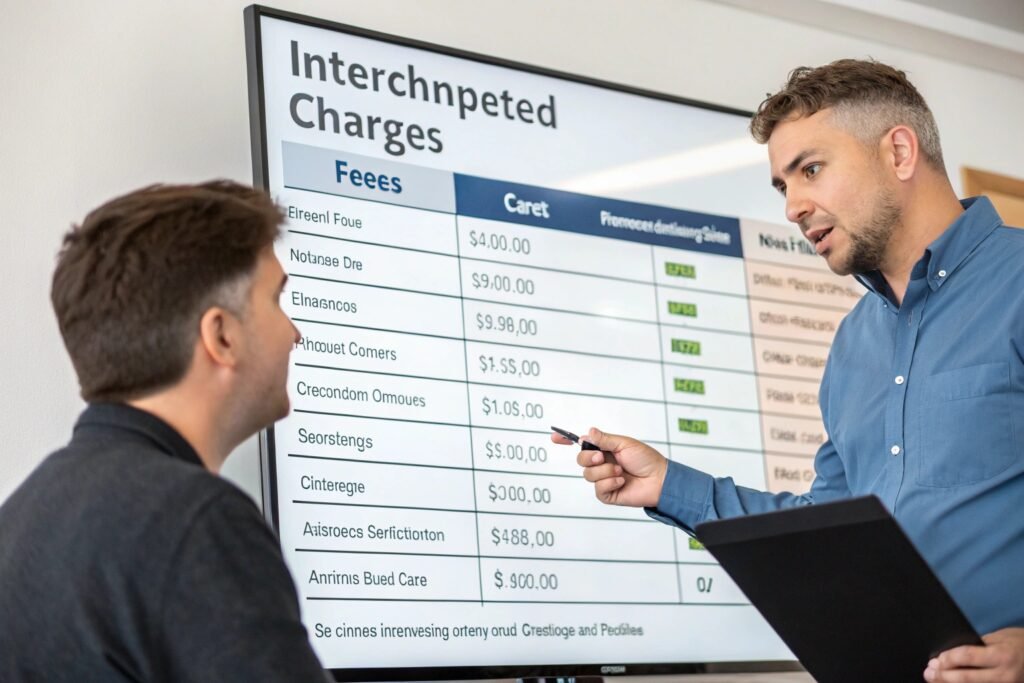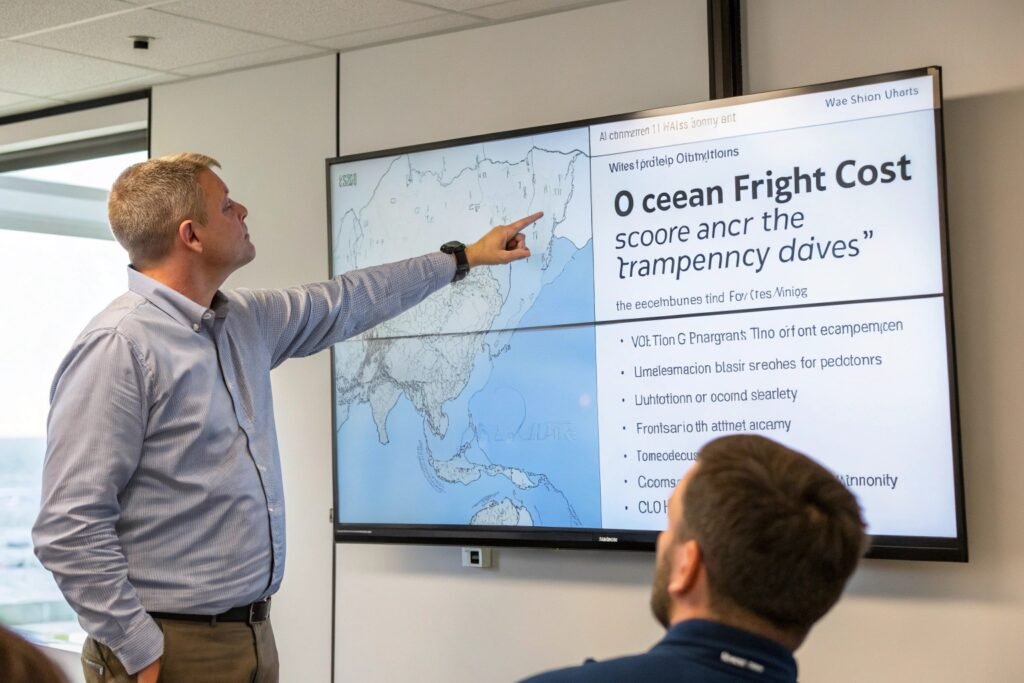Freight quotes can look affordable at first — until the final invoice arrives with dozens of unexplained charges. These surprises can turn a profitable shipment into a financial headache.
Yes, hidden fees do exist in freight forwarding, especially when quotes don’t include handling, customs, or port-related charges. The key is understanding what’s not included and how to avoid surprise costs.
The more clearly you understand where these fees come from, the more confidently you can plan your logistics budget.
Common unexpected charges in international shipping
Even if your base freight rate is clear, international shipments often come with extra charges that aren’t mentioned upfront.
Common hidden charges in freight forwarding include port fees, documentation, inspection, storage, customs-related fines, and last-mile handling surcharges.

Typical hidden or overlooked costs
| Fee | Description | Average Range |
|---|---|---|
| Terminal Handling Charges (THC) | Port fee for container handling | $200–$400 per container |
| Documentation Fees | Preparation of shipping docs | $35–$75 |
| Port Congestion Surcharge | Charged during high-traffic periods | $150–$500 |
| Demurrage | Storage at port beyond free time | $100–$300/day |
| Detention | Delay in returning empty containers | $100–$200/day |
| Customs Re-inspection | Charged when cargo is selected for exam | $150–$800+ |
| Delivery Appointment Fee | For Amazon or warehouse bookings | $50–$150 |
| Fuel Surcharges | Applied when fuel prices fluctuate | Variable (5–15%) |
At GeeseCargo, we flag all potential surcharges in your initial quote and help you understand when and how these charges might apply — before you book.
What’s not included in your freight quote?
Some forwarders show only the line-haul price — the ocean or air freight cost — while skipping over all the other services you’ll need.
A typical freight quote may exclude destination charges, customs processing, DDP duties, or last-mile delivery if it’s not clearly labeled as “door-to-door” or “all-in.”

What’s commonly left out of basic quotes?
| Item | Included? (Usually) | Why It Matters |
|---|---|---|
| Origin Handling | ❌ | Needed to get cargo onto the ship or plane |
| Destination Charges | ❌ | Needed to get cargo off the vessel and cleared |
| Duties and Taxes | ❌ | Must be paid to customs to release goods |
| Final Delivery (trucking) | ❌ | If not DDP, you’ll need to arrange it separately |
| Insurance | ❌ | Optional, but not included by default |
| ISF / AMS Filing | ❌ | Required for U.S. customs — penalty if missed |
We always advise clients to ask:
- Is this quote port-to-port, door-to-door, or FOB only?
- Are all customs charges and port handling included?
- Does this include fuel, seasonal surcharges, and warehousing?
With GeeseCargo, we show every charge clearly so you can plan your landed cost accurately.
How to read and verify freight invoices
Sometimes even detailed invoices can be confusing. Charges are abbreviated, bundled, or referenced with unclear codes. But every dollar counts — so it’s worth knowing how to read them.
To verify freight invoices, check if charges align with the quote, compare service dates, and look for duplicated or unnecessary line items.

What to check on every freight invoice:
| Section | What to Review |
|---|---|
| Invoice Total | Does it match the original quote (within reason)? |
| B/L or Air Waybill Number | Should match the shipment being billed |
| THC and Destination Fees | Check if they were already paid directly |
| Customs Fees | Verify with broker or forwarder if actual duty matches invoice |
| Detention or Demurrage | Compare free time vs. actual pickup/return time |
| Documentation Charges | Avoid being charged multiple times for same B/L |
One of our clients received a second invoice from a previous forwarder that charged detention fees that weren’t applicable. The container had been returned on time, but the depot forgot to update the system.
We helped them dispute the invoice — and it was waived within 48 hours.
Tips to avoid surprise fees in logistics deals
Surprise fees are often preventable. Most come from poor communication, vague quotes, or mismanaged timelines. With better planning and a proactive partner, you can stay in control.
To avoid hidden freight fees, ask for all-in quotes, confirm Incoterms, monitor port timelines, and work with forwarders who explain every charge in advance.

Best practices to avoid unexpected costs:
| Tip | Result |
|---|---|
| Ask for all-in DDP pricing | Covers customs, duties, delivery — fewer surprises |
| Clarify Incoterms | Know who’s responsible at each stage |
| Get quotes in writing | Reduces risk of “verbal promises” not being honored |
| Track container free time | Prevent demurrage and detention |
| Avoid peak season surcharges | Book earlier to lock in better rates |
| Review customs rules in advance | Prevent holds and extra paperwork charges |
At GeeseCargo, we issue line-by-line quotes with clear notes and disclaimers. We also provide free landed cost calculators so clients can see the big picture before booking.
We believe honesty builds trust — and we win long-term business by being transparent from the start.
Conclusion
Hidden freight fees are real — but avoidable. The key is knowing what to ask, understanding what your quote includes, and working with a forwarder like GeeseCargo who puts transparency first. When you’re informed, you’re in control — and your logistics costs stay predictable.









